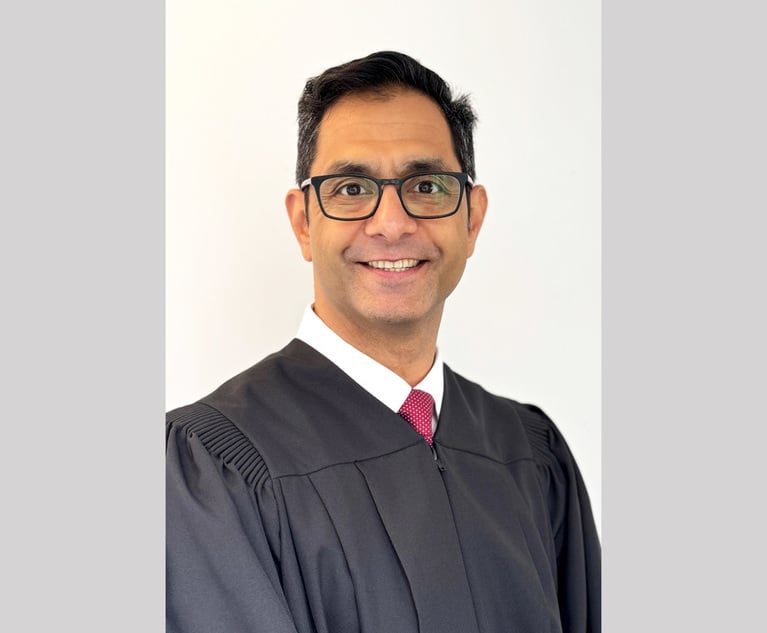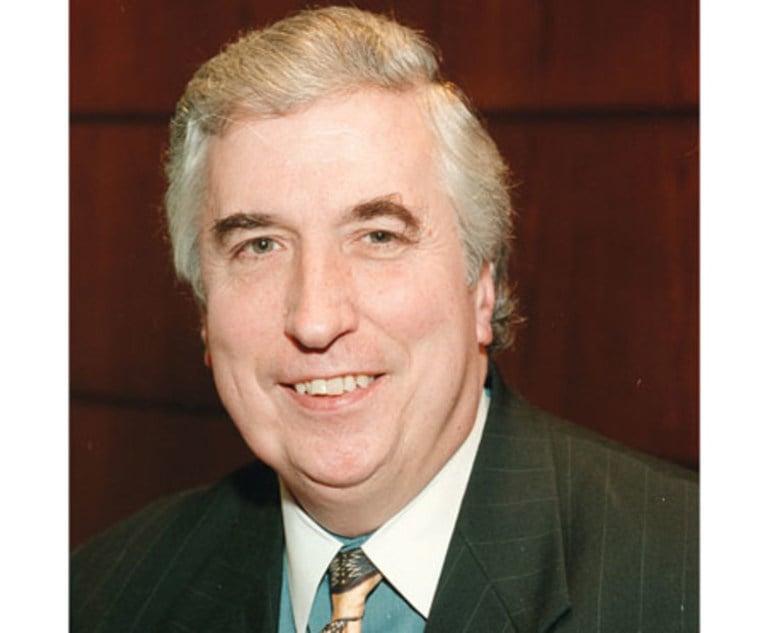NY Lawmakers Push for Disclosure in Online Political Ads After Russian Meddling
New York Gov. Andrew Cuomo and the Democratic-dominated state Assembly said Wednesday they plan to push a new law to require social media companies to disclose who is paying for their political ads.
February 28, 2018 at 03:12 PM
4 minute read

ALBANY — Amid federal inaction on Russian interference in U.S. elections, New York Gov. Andrew Cuomo and the Democratic-dominated state Assembly said Wednesday they plan to push a new law to require social media companies to disclose who is paying for their political ads.
The proposal, included in the governor's executive budget proposal unveiled in mid-January, would require all political communications—including print, digital, visual or auditory—to state who paid for the advertisements. The so-called Democracy Protection Act also would require online platforms, such as social media sites, to archive political ads and “protect state elections from foreign influence.”
The push from the Democratic governor—who has long been rumored to have presidential ambitions—comes amid allegations and evidence that Russia interfered with the 2016 presidential election to aid President Donald Trump. In Washington, a bipartisan group of lawmakers introduced the Honest Ads Act in October in an effort to regulate online ads similarly to the way that political ads are regulated on television and radio.
“We have a situation where citizens, rightfully, can be distrustful of the outcome of an election. This is no longer a plot in a cheap spy novel. Russia hacked our elections. Russia hacked state elections. Russia stole identities of American citizens with the intent of influencing elections and what happened is a confluence of events,” Cuomo told reporters.
Inquiries made to several social media companies were not immediately returned.
The Internet Association, a trade group that represents such companies as Facebook, Google and Twitter, lauded the governor and said it's working with federal lawmakers on a possible solution to “ensure consistency for digital platforms.”
Facebook revealed in September that around 3,000 ads were connected to user accounts in Russia. Facebook, Google and Twitter counsel testified before Congress in the Russia investigation in October.
Floyd Abrams, senior counsel at Cahill Gordon & Reindel's litigation practice group, said the electorate should be aware of who is paying for political ads.
“We protect political speech more than any other country, but it is just as critical as we learned with regret in the last presidential election that anyone who sees a political ad should know who is speaking, who is paying for the speech, and where the speech comes from,” Abrams told reporters during the conference call.
Abrams added that there's nothing in the First Amendment or in First Amendment law that restrains states from identifying who is paying for political ads online.
Assembly Speaker Carl Heastie, who leads more than 100 Democrats in the 150-seat chamber, said his conference is poised to pass the bill later Wednesday.
“New York laws need to reflect the rapidly changing nature of political campaigns. Social media and digital advertising has dramatically changed how we receive political advertisements in today's world. The recent elections have brought to attention a serious need to re-evaluate how we safeguard the electoral process to ensure the integrity of our democracy,” said Heastie, a Bronx Democrat.
Additionally, Cuomo criticized Congress for the apparent inaction to address foreign interference in the presidential election.
“My message to Washington is very simple; lead, follow, or get out of the way. The Republicans used to believe in state rights. That was their mantra. That was before they took control of the federal government. But if Washington is not going to act, then let the states act,” Cuomo said.
“I think letting the states act, frankly, is a way to achieve federal action because the social media companies won't be able to defend either the loss of business or the duality of the systems,” Cuomo added.
This content has been archived. It is available through our partners, LexisNexis® and Bloomberg Law.
To view this content, please continue to their sites.
Not a Lexis Subscriber?
Subscribe Now
Not a Bloomberg Law Subscriber?
Subscribe Now
NOT FOR REPRINT
© 2024 ALM Global, LLC, All Rights Reserved. Request academic re-use from www.copyright.com. All other uses, submit a request to [email protected]. For more information visit Asset & Logo Licensing.
You Might Like
View All

NYC's Administrative Court's to Publish Some Rulings in the New York Law Journal Is Welcomed. But It Should Go Further
4 minute read
Rulings From NYC's Administrative Law Court to Be Published in the Law Journal

Trending Stories
- 1Call for Nominations: Elite Trial Lawyers 2025
- 2Senate Judiciary Dems Release Report on Supreme Court Ethics
- 3Senate Confirms Last 2 of Biden's California Judicial Nominees
- 4Morrison & Foerster Doles Out Year-End and Special Bonuses, Raises Base Compensation for Associates
- 5Tom Girardi to Surrender to Federal Authorities on Jan. 7
Who Got The Work
Michael G. Bongiorno, Andrew Scott Dulberg and Elizabeth E. Driscoll from Wilmer Cutler Pickering Hale and Dorr have stepped in to represent Symbotic Inc., an A.I.-enabled technology platform that focuses on increasing supply chain efficiency, and other defendants in a pending shareholder derivative lawsuit. The case, filed Oct. 2 in Massachusetts District Court by the Brown Law Firm on behalf of Stephen Austen, accuses certain officers and directors of misleading investors in regard to Symbotic's potential for margin growth by failing to disclose that the company was not equipped to timely deploy its systems or manage expenses through project delays. The case, assigned to U.S. District Judge Nathaniel M. Gorton, is 1:24-cv-12522, Austen v. Cohen et al.
Who Got The Work
Edmund Polubinski and Marie Killmond of Davis Polk & Wardwell have entered appearances for data platform software development company MongoDB and other defendants in a pending shareholder derivative lawsuit. The action, filed Oct. 7 in New York Southern District Court by the Brown Law Firm, accuses the company's directors and/or officers of falsely expressing confidence in the company’s restructuring of its sales incentive plan and downplaying the severity of decreases in its upfront commitments. The case is 1:24-cv-07594, Roy v. Ittycheria et al.
Who Got The Work
Amy O. Bruchs and Kurt F. Ellison of Michael Best & Friedrich have entered appearances for Epic Systems Corp. in a pending employment discrimination lawsuit. The suit was filed Sept. 7 in Wisconsin Western District Court by Levine Eisberner LLC and Siri & Glimstad on behalf of a project manager who claims that he was wrongfully terminated after applying for a religious exemption to the defendant's COVID-19 vaccine mandate. The case, assigned to U.S. Magistrate Judge Anita Marie Boor, is 3:24-cv-00630, Secker, Nathan v. Epic Systems Corporation.
Who Got The Work
David X. Sullivan, Thomas J. Finn and Gregory A. Hall from McCarter & English have entered appearances for Sunrun Installation Services in a pending civil rights lawsuit. The complaint was filed Sept. 4 in Connecticut District Court by attorney Robert M. Berke on behalf of former employee George Edward Steins, who was arrested and charged with employing an unregistered home improvement salesperson. The complaint alleges that had Sunrun informed the Connecticut Department of Consumer Protection that the plaintiff's employment had ended in 2017 and that he no longer held Sunrun's home improvement contractor license, he would not have been hit with charges, which were dismissed in May 2024. The case, assigned to U.S. District Judge Jeffrey A. Meyer, is 3:24-cv-01423, Steins v. Sunrun, Inc. et al.
Who Got The Work
Greenberg Traurig shareholder Joshua L. Raskin has entered an appearance for boohoo.com UK Ltd. in a pending patent infringement lawsuit. The suit, filed Sept. 3 in Texas Eastern District Court by Rozier Hardt McDonough on behalf of Alto Dynamics, asserts five patents related to an online shopping platform. The case, assigned to U.S. District Judge Rodney Gilstrap, is 2:24-cv-00719, Alto Dynamics, LLC v. boohoo.com UK Limited.
Featured Firms
Law Offices of Gary Martin Hays & Associates, P.C.
(470) 294-1674
Law Offices of Mark E. Salomone
(857) 444-6468
Smith & Hassler
(713) 739-1250






